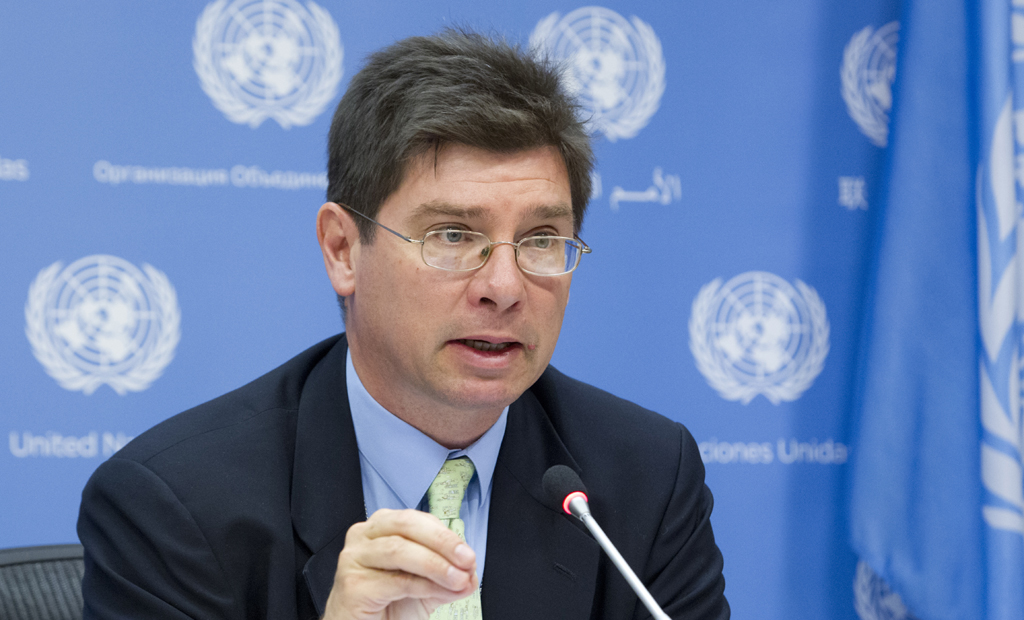February 26, 2026 09:17 am (IST)

UN urges protections for Sri Lankans migrating for work
New York, May 28 (IBNS): A United Nations human rights expert called on Tuesday on the Government of Sri Lanka to increase its attention and efforts to prevent exploitation of its nationals working abroad, including by shoring up protections at all levels.
“The Government of Sri Lanka must boost the efforts it has made in recent years in order to prevent exploitation and abuse of Sri Lankans migrating abroad for work, during the recruitment stage, while in service in the destination country, and upon return to the country,” the UN Special Rapporteur on the human rights of migrants, François Crépeau, on Tuesday urged.
At the end of his first official visit to Sri Lanka, from 19 to 26 May, Crépeau also called for better monitoring of the recruitment industry by putting in place a comprehensive policy with high standards, improving recruitment agencies’ services and holding them accountable, regulating irregular sub-agents, and reducing costs for migrants.
According to a press release from the UN Human Rights Office (OHCHR), over the years a large recruitment industry has developed in Sri Lanka. Approximately 1.8 million Sri Lankans are working abroad, with great social consequences for migrants and their families.
Remittances have become the key foreign exchange earning source in the country, and a source of economic development and dependency for nearly a third of the population.
“Malpractice by private recruitment agencies and gaps in the regulatory framework for sub-agents lead to exploitative and abusive situations for migrant workers,” said Crépeau, quoting the 2008 Sri Lankan National Labour Migration Policy.
“I heard reports of migrants having signed a contract in Sri Lanka which was replaced by another upon arrival in the destination State, with a lower salary and often a different job description,” he said. “Many migrants also report paying excessive recruitment fees, as well as human rights violations in the workplace, including serious abuse and exploitation.”
He noted that, despite recent initiatives, Sri Lankan authorities are often not able to protect Sri Lankan migrants in the destination States. “Cooperation with destination States needs to be enhanced in order to ensure that the rights of Sri Lankans are respected during the whole migration process,” he said.
The majority of Sri Lankan women migrate to work as domestic workers, although the proportion of domestic workers is decreasing. Due to the financial incentives provided, some of these women are sent abroad by their husbands or family members, who expect them to send their salaries back home.
“Due to the worksite being a private household and the informal nature of the work, domestic workers are particularly vulnerable to abuse and exploitation,” Crépeau warned. “Domestic work is excluded from most of the labour laws in many countries, including in Sri Lanka.”
“I call on the authorities to create income-generating opportunities in Sri Lanka, especially for women, youth and minorities, including in rural areas, in order to ensure that migration is a choice, rather than a necessity,” Crépeau said.
(Special Rapporteur on the human rights of migrants François Crépeau. UN Photo/JC McIlwaine)
Support Our Journalism
We cannot do without you.. your contribution supports unbiased journalism
IBNS is not driven by any ism- not wokeism, not racism, not skewed secularism, not hyper right-wing or left liberal ideals, nor by any hardline religious beliefs or hyper nationalism. We want to serve you good old objective news, as they are. We do not judge or preach. We let people decide for themselves. We only try to present factual and well-sourced news.
Support objective journalism for a small contribution.
Latest Headlines
Iran ready for war or peace ahead of Geneva nuclear talks, says Foreign Minister Abbas Araghchi
Wed, Feb 25 2026
WHO: Attacks on Ukraine’s health care surged 20 percent in 2025
Wed, Feb 25 2026
After 16 years, London eatery closes as Indian-origin owner alleges repeated attacks by Pakistanis
Tue, Feb 24 2026
Viral Irish food bank image triggers racist remarks against Indians
Tue, Feb 24 2026
Netherlands’ first openly gay PM Rob Jetten takes oath. Meet his partner Nicolás Keenan
Tue, Feb 24 2026
Who was El Mencho? Mexico's most wanted drug lord, with USD 15 million bounty, killed
Mon, Feb 23 2026
UK: Taxi driver jailed for nine years for raping sleeping passenger
Sun, Feb 22 2026







